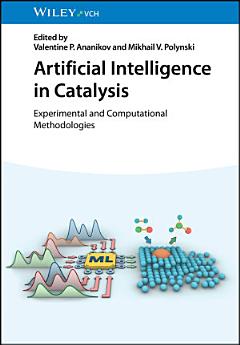Artificial Intelligence in Catalysis: Experimental and Computational Methodologies
About this ebook
Artificial Intelligence in Catalysis delivers a state-of-the-art overview of artificial intelligence methodologies applied in catalysis. Divided into three parts, it covers the latest advancements and trends for catalyst discovery and characterization, reaction predictions, and process optimization using machine learning, quantum chemistry, and cheminformatics.
Written by an international team of experts in the field, with each chapter combining experimental and computational knowledge, Artificial Intelligence in Catalysis includes information on:
- Artificial intelligence techniques for chemical reaction monitoring and structural analysis
- Application of artificial neural networks in the analysis of electron microscopy data
- Construction of training datasets for chemical reactivity prediction through computational means
- Catalyst optimization and discovery using machine learning models
- Predicting selectivity in asymmetric catalysis with machine learning
Artificial Intelligence in Catalysis is a practical guide for researchers in academia and industry interested in developing new catalysts, improving organic synthesis, and minimizing waste and energy use.
About the author
Valentine P. Ananikov is a Professor and Laboratory Head at the Zelinsky Institute of Organic Chemistry at the Russian Academy of Sciences in Moscow, Russia. His research interests are focused on the development of new concepts in transition metal and nanoparticle catalysis, sustainable organic synthesis, and new methodologies for mechanistic studies of complex chemical transformations.
Mikhail V. Polynski is a Senior Research Fellow at the National University of Singapore. His current research focuses on the automation of computational chemistry, machine learning for chemical applications, Born-Oppenheimer molecular dynamics modeling, and the theory of catalysis.




